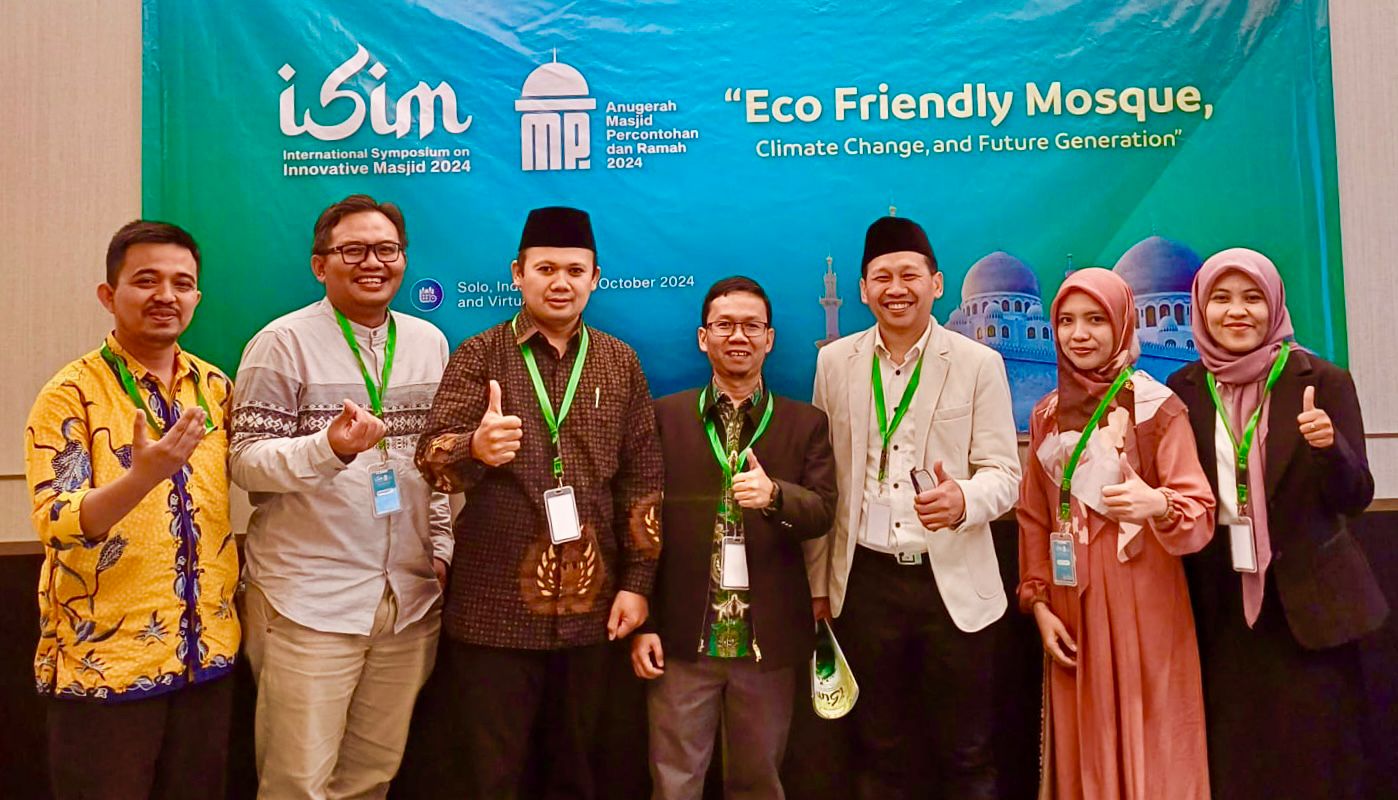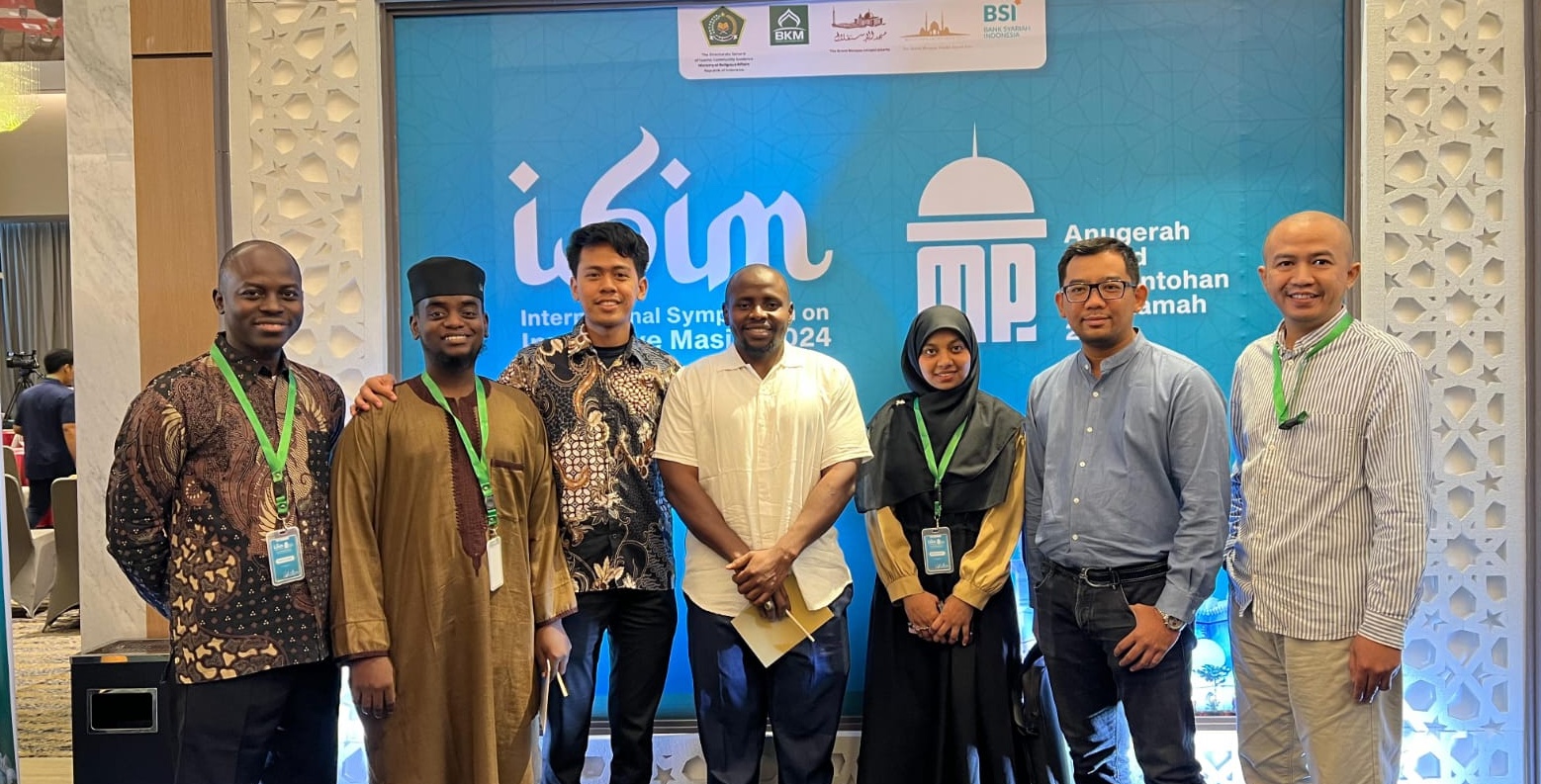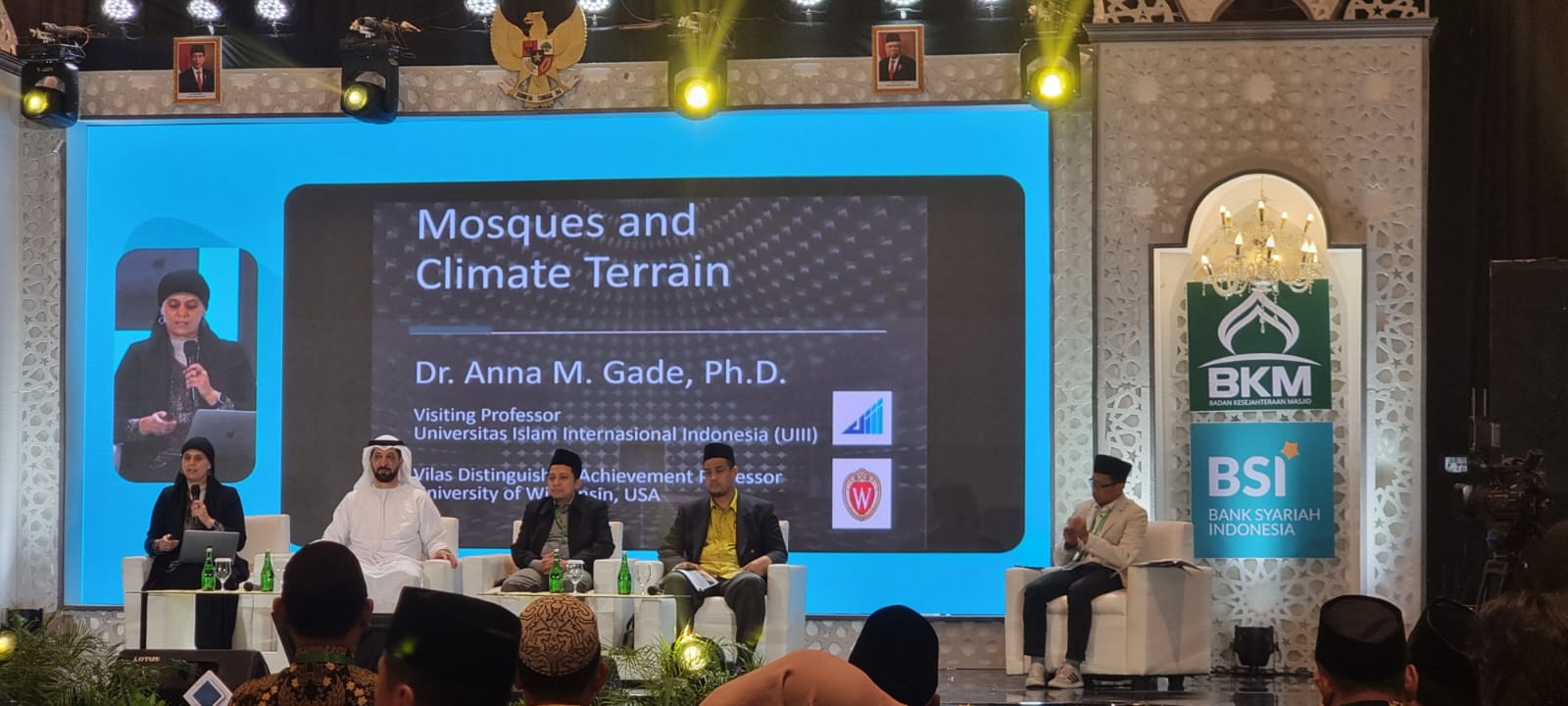UIII Alumni Showcase Best Practices in Eco-Friendly Mosque Management at ISIM 2024
October 13, 2024Contributor: Supriyono | Editor: Dadi Darmadi

Surakarta, October 3, 2024 – Three distinguished alumni from Universitas Islam Internasional Indonesia (UIII) brought compelling insights on eco-friendly mosque management to the International Symposium on Innovative Masjid (ISIM) 2024, held in Surakarta from October 1-3.
Organized by Indonesia’s Ministry of Religious Affairs (MORA), the symposium aimed to foster the development of eco-friendly mosques and sustainable practices across Islamic communities. The UIII alumni presented research that not only emphasized environmental consciousness but also highlighted mosques’ essential role in promoting sustainability within their communities.
Eya Benlakhdhar, an alumnus from UIII’s Faculty of Islamic Studies, presented her paper titled “Sustainable Heritage: Preserving the Eco-Friendly Architecture of Historic Mosques in the Medina of Tunis.” Her research examined the traditional eco-conscious architecture of historic mosques in Tunisia’s medina. She emphasized the significance of preserving these structures not only as cultural heritage but also as exemplars of sustainable design that can inspire future mosque architecture globally.
Meanwhile, Ramita Paraswati, a graduate of the Faculty of Social Sciences, shared her practical perspective on mosque-based social welfare programs in Indonesia. Her study, titled “Mosque-Based Eco-Social Welfare: Study Case of the Brigade Bersih Masjidmu Program by Masjid Al-Falah Sragen,” showcased how community-led initiatives can transform local mosques into centers of eco-social welfare. This initiative mobilizes volunteers to ensure cleanliness and promote eco-friendly practices within the mosque.
Additionally, Fahmi Syahirul Alim, also a graduate of the Faculty of Social Sciences, highlighted the role of mosques in promoting green Islamic movements. His presentation, “At-Tanwir Muhammadiyah Mosque: Realizing the Center of Green Islam Movement from the Place of Worship,” explored how the At-Tanwir Muhammadiyah Mosque has become a model for environmental responsibility, combining worship with eco-friendly practices.
The participation of UIII alumni at ISIM 2024 underscores the university’s dedication to pioneering sustainable development within Islamic communities. Through research that bridges Islamic principles with contemporary environmental practices, UIII aims to inspire both individuals and institutions to integrate sustainability into their spiritual and community lives. ISIM 2024 has showcased how mosques can become centers for environmental and social progress, with UIII alumni leading the way in realizing a vision for eco-friendly mosque practices.
- UIII Extends Application Deadline for 2025 International Admissions
- What Does Eid al-Fitr Mean for the UIII Academic Community?
- UIII PhD Scholar Ararat Kostanian Delivers Lecture at Armenia's Yerevan State University
- Swedish Ambassador to Indonesia Applauds UIII’s Vision, Explores Future Collaboration
- Depok Mayor Supports UIII as the Green Lung of Depok and Beyond
- Depok Mayor Pledges to Build Performance Hall at UIII
- New Parking Facility Launched, Part of UIII-Sentra Medika Hospital Partnership
- Yogyakarta’s UII Won 1st FisFastFest’s Clash of Campuses
- Vice Minister of Religious Affairs Praises UIII as a Global Hub for Islamic Education
- Hurray!! UIII Wins Football Championship


